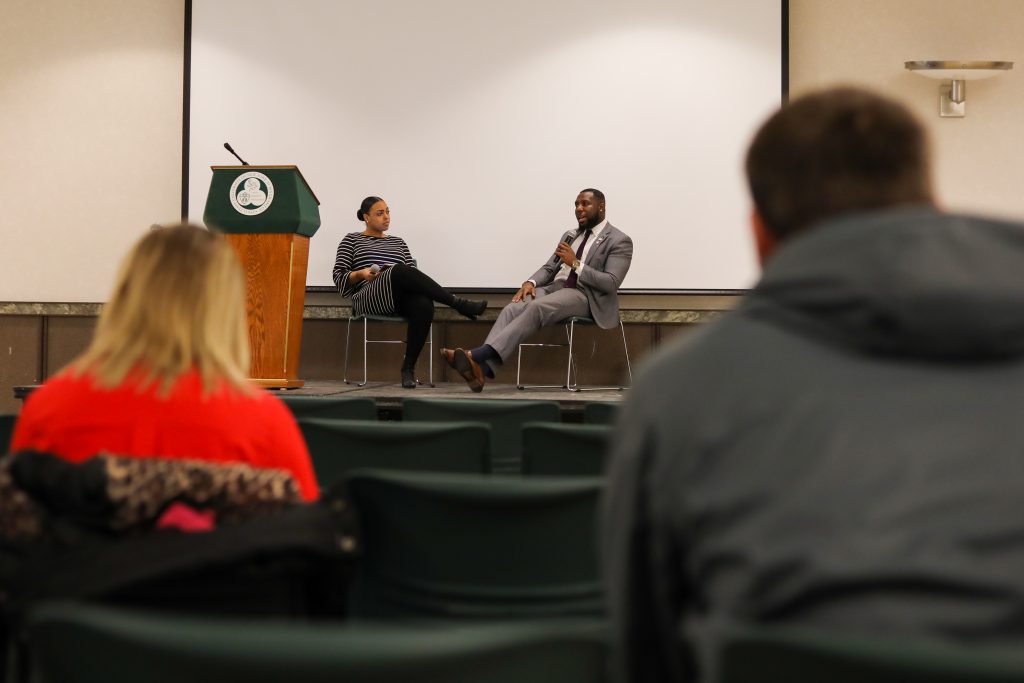In 2017, a debate erupted at Binghamton University over the name of the Thomas J. Watson School of Engineering. On Thursday, Wes Bellamy, a politician from Charlottesville, Virginia who previously proposed legislation to remove monuments of Confederate leaders Robert E. Lee and Stonewall Jackson in the city, spoke to an audience of around 40 people on the University’s campus.
The talk, titled “Monumental: The Fight Lives On,” was part of the Multicultural Resource Center’s MLK Week of Welcome Celebration and centered around the significance of names and statues, a topic which connects to the University’s discussions on the Watson School of Engineering, which was named for Thomas Watson, the founder of International Business Machines (IBM). In addition to being a scientist and entrepreneur, Watson was also connected to Adolf Hitler’s Nazi Germany and the Holocaust.
During the event, Bellamy discussed his proposal to remove Confederate statues and the backlash he received from right-wing groups who rioted in Charlottesville at the “Unite the Right” rally in 2018. According to Bellamy, his experiences with the protests led him to begin talking about changing problematic legacies.
“A lot of people, both young and old alike, all learn from some of the background about what transpired in Charlottesville,” Bellamy said. “I also think it’s important for not only myself but others as well to do a deep dive within ourselves and challenge ourselves to think [what] we are willing to do and sacrifice for change.”
Jonah Liautaud, vice president of the Black Student Union and a senior majoring in sociology, said he learned from Bellamy’s speech that not everyone has to be a leader to be part of change.
“The biggest lesson I got from this is that everyone has a voice,” Liautaud said. “Not everyone is going to be a leader. Sometimes, you’ll be someone in the background. That’s something he emphasized. The people who are not in the forefront of everything can play just as big of a role as the leaders.”
Bellamy said the Watson School of Engineering is an example of such a legacy, and should be removed and replaced with a name more representative of the University community.
“[The name] needs to go,” Bellamy said. “You all have to speak out and demand change. You shouldn’t accept no for an answer. You have to speak up and speak out boldly in regards to these things that do not represent the values of the community in which we are trying to create.”
Aminata Jaiteh, a senior majoring in sociology, said she noticed how some students were uncomfortable with the name of the Watson School of Engineering during her time as an orientation advisor. Drawing from Bellamy’s lecture, Jaiteh said she believes it’s important to address Watson’s legacy and work to make everyone feel more welcome in their communities.
“We’re saying what happened throughout history is not acceptable so we’re going to remove that symbol,” Jaiteh said. “I understand why it’s named after Watson, but why do you necessarily have to keep something that is still a representation of something that occurred in the past as a way to repress people that he honestly did not find acceptable, because he has a very racist history.”



